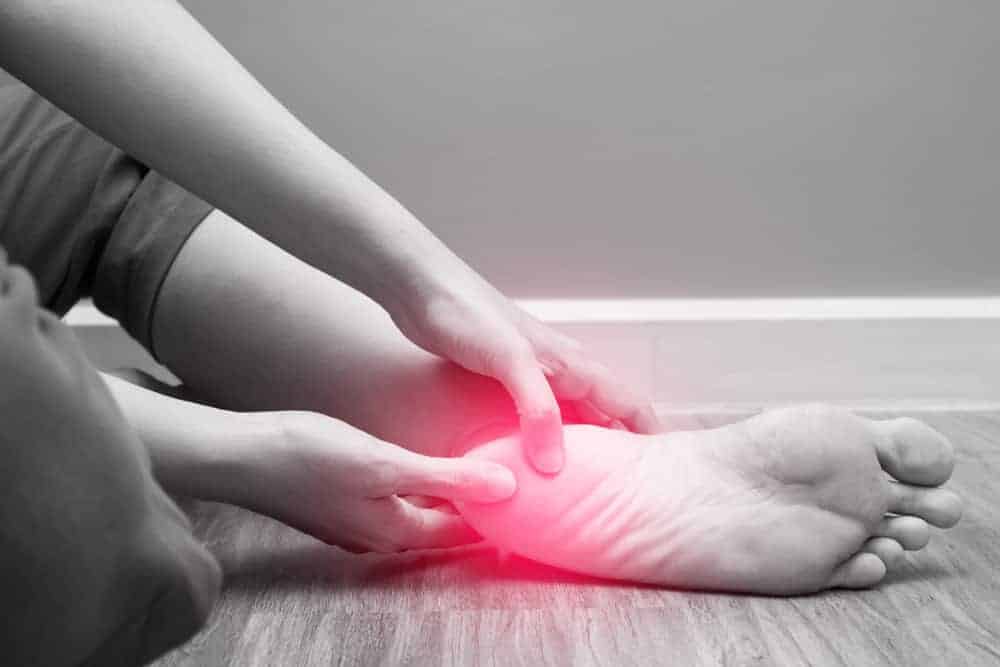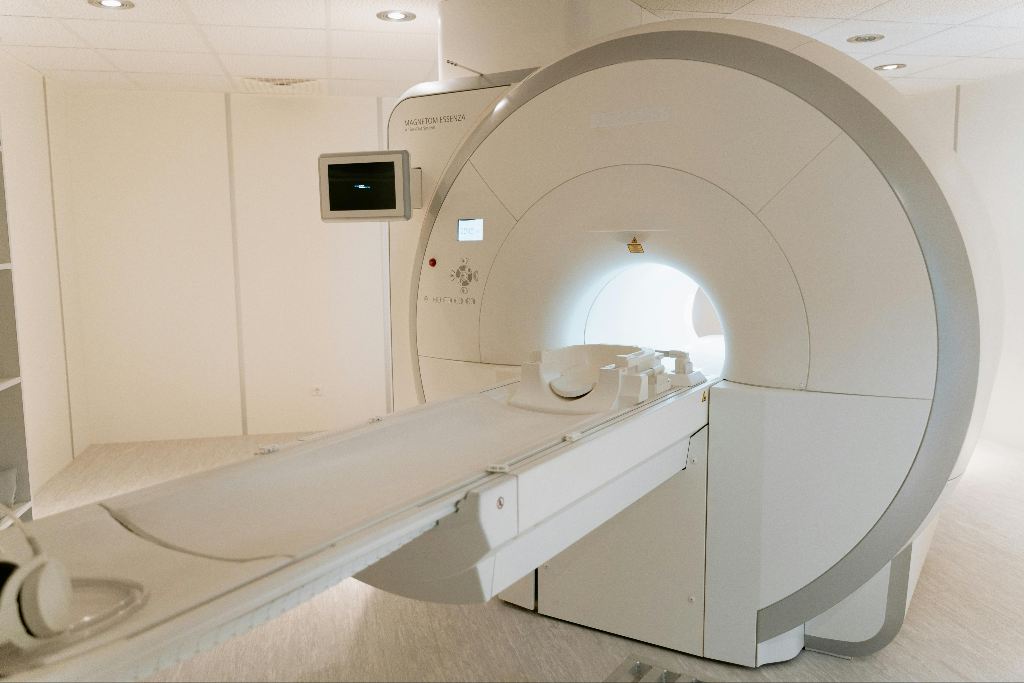Have you ever felt a stabbing pain in the heels of your feet as you take your first few steps in the morning? Or noticed a sharp pain near the heels of your feet after standing on your feet all day? If so, you might be struggling with plantar fasciitis.
At AICA Orthopedics, we recommend you meet with one of our licensed medical professionals at our orthopedic clinic as soon as symptoms of plantar fasciitis occur so you can begin alleviating painful symptoms.
Symptoms of Plantar Fasciitis
In addition to stabbing heel pain when you first bear weight in the morning or after a long day of standing, there are other common symptoms of plantar fasciitis. Patients also report experiences of stabbing pain after going from sitting to standing, or after workouts that involve repetitive high-impact activities, like running or aerobics classes.
In many cases, patients develop plantar fasciitis without a direct identifiable reason or specific experience. However, certain risk factors can signify more likelihood in developing plantar fasciitis, such as tight calf muscles, very high arches in the feet, and obesity, any of which can affect the foot and heel’s ability to absorb shock during activity.
Runners and sports enthusiasts may develop plantar fasciitis after repetitive stress to the plantar fascia, and those new to running or other high-impact activities may also experience symptoms.
Treatments of Plantar Fasciitis
Visit an orthopedic clinic to determine the best treatment for you. Common treatments of plantar fasciitis include conservative, low-impact approaches such as resting, icing the area, and taking approved pain relievers.
Depending on the severity of the symptoms, doctors may also recommend specific exercises and physical therapy to stretch the plantar fascia, Achilles tendon, and surrounding foot and calf muscles. This will strengthen those areas and provide more stability for your ankles and heels.
Supportive footwear may also be recommended, including arch supports, thick-soled shoes, and even night splints. The goals of treatment are always to alleviate the pain symptoms but also to treat the underlying issue of inflammation of the plantar fascia.
Risk of Untreated Plantar Fasciitis
It is never a good idea to “walk it off”. Don’t be fooled that plantar fasciitis has disappeared just because symptoms decrease after you begin moving in the mornings.
Because symptoms are strong and acute, not chronic and long-lasting, patients sometimes think plantar fasciitis is something that will go away on its own, which is simply not the case! In fact, ignoring plantar fasciitis symptoms can actually lead to more chronic pain in the heel and radiating out to other parts of the body.
Plantar Fasciitis can interrupt your daily routines if left untreated because heel pain may cause other parts of your body, such as your feet, legs, hips, and back, to compensate for the stress and strain. Additionally, the healing and recovery process can take much longer as the severity of the plantar fasciitis increases.
If plantar fasciitis is left untreated or gets significantly worse, it can lead to more extreme complications that may even require surgery. Micro-injuries are tears in the plantar fascia that can grow in size and number if inflammation and stress continue to affect the area. Multiple tears in the plantar fascia can also lead to a plantar rupture, which is a very painful experience. It can often be debilitating and result in the inability to bear weight on the heel or foot of the affected area.
It is also possible that you could develop plantar fibromatosis, or small, benign nodules that grow along the plantar fascia, which can make walking and weight-bearing uncomfortable or unbearable. However, the most common risk of untreated plantar fasciitis is developing heel spurs. Heel spurs can develop slowly and relatively undetected by the patient until they suddenly become unbearable with sharp pains.
AICA Orthopedics is an orthopedic clinic staffed with orthopedists, neurologists, neurosurgeons, physical therapists, and chiropractors. Our team is dedicated to thoroughly diagnosing patients and providing an individualized treatment plan that addresses not only the symptoms but also the underlying issues.
If you are experiencing heel pain and are concerned about the risks and potential for chronic pain, contact our office via phone or our website to schedule an appointment as soon as same-day to meet with an experienced doctor near you.





